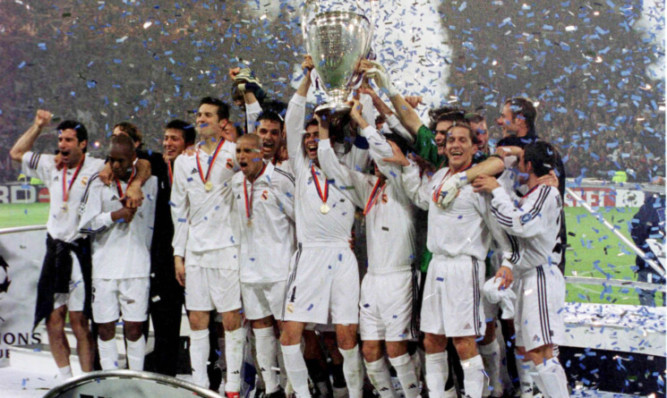
Do you want the good news or the bad news?
The announcement that Hampden Park is to stage four European Championship games in 2020 shows the revamped and expanded tournament format is already benefiting Scotland.
In that respect, there’s plenty to be happy about. But when it comes to how smoothly the tournament will run when spread out across the entire continent, I’m not so sure it’ll be all smiles.
I first got wind that change was afoot from Michel Platini himself, during the build-up to Euro 2012 in Poland and Ukraine.
At that time, Ukraine were struggling against deadlines for providing stadia and other infrastructure and it looked like they might fall short.
UEFA are always keen to have a viable alternative under those circumstances, so I asked Platini whether Germany was under consideration.
That seemed logical to me. After all, the Germans share a border with Poland and, given the quality of their grounds, would have no problems filling in at short notice. I was stunned when Platini told me: “No”.
Instead, he insisted, he would look to share games around several countries if Ukraine failed to deliver on their promises in time to stage the tournament.
It was something that took me by surprise at the time. But now I can see why it was an idea he was keen to pursue, especially in tandem with expanding the number of nations competing at the Finals.
Euro 2016 in France will, like the 2020 tournament, feature 24 teams almost half of all UEFA’s member countries.
France is one of the few members, along with England, Germany and probably Italy, that could cope with the demands of staging such a huge tournament on its own.
As a result, breaking with tradition and offering packages of games to multiple member nations would, to Platini who is as much a politician as a football administrator have seemed like the most inclusive, democratic way forward.
It all seems pretty sound on the surface, but there are going to be problems primarily, I’d imagine, for supporters.
The prospect of your team playing games in multiple destinations, thousands of miles away from each other, and potentially within days of each other, raises massive financial and logistical issues.
Glasgow, for instance, which is happily staging three group games and one last-16 fixture, is over 2500 miles from Baku in Azerbaijan, which will be home to one quarter-final.
Try organising that trip at short notice without bankrupting yourself! In that respect, Euro 2020 is going to be a very different sort of tournament to those which have gone before.
The three-week festival of football staged in a single country is no more.
The hope has to be that in six years’ time, each of the host cities manages to put on some sort of show, to build some sort of atmosphere, albeit on a much smaller scale than we’re used to.
If we manage that, Platini’s party-planning skills will be the toast of Europe. But it won’t surprise me if too many fans are left dancing in the dark.

Enjoy the convenience of having The Sunday Post delivered as a digital ePaper straight to your smartphone, tablet or computer.
Subscribe for only £5.49 a month and enjoy all the benefits of the printed paper as a digital replica.
Subscribe